What the secret code on your plastic packaging means
It’s a confusing code that doesn’t make much sense to the untrained eye, but the consequences of not knowing what it means could be lethal.
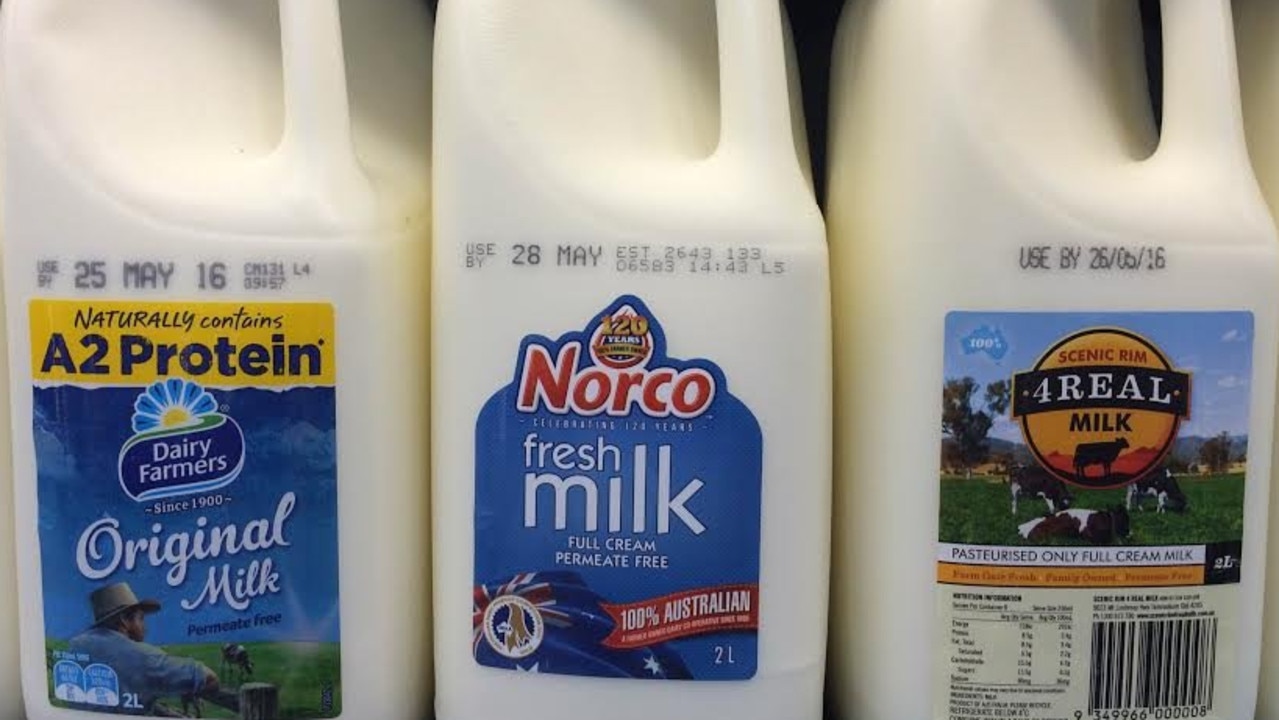
It turns out there’s a code on every plastic piece packaging you’ve ever had – and you’ve probably never even noticed it.
Digging through my apartment and grabbing a pack of blueberries, some dishwashing liquid, a Nuttelex pot, toothpaste and some body cream, it turns out they all have different numbers and words around the common recycling triangle.
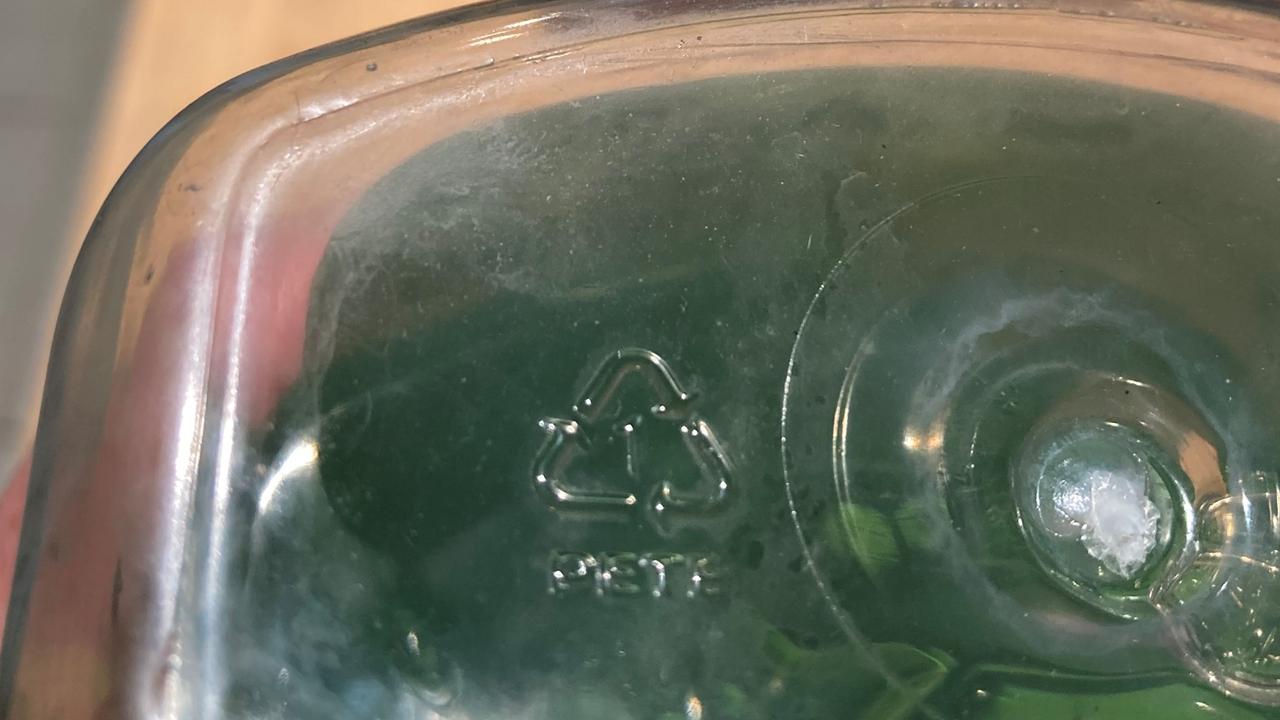
For example, the box of blueberries, the hand wash soap and dishwashing liquid all have a ‘1’ in the triangle with the word ‘PETE’ underneath.
Who’s PETE 1 hear you say? It turns out PETE is Polyethylene Terephthalate, also known as PET or polyester. This is the most common form of plastic used to make bottles for water, milk, soft drinks, cooking oil and shampoo. It’s also the stuff they use for those hard plastic tubs that some fruits come in.
In my home I found PETE or PET was the predominant code on my plastics. While my yoghurt pot was labelled ‘PDE’ and my toothpaste and body cream ‘7’ ‘other’, PETE was the winner by far.
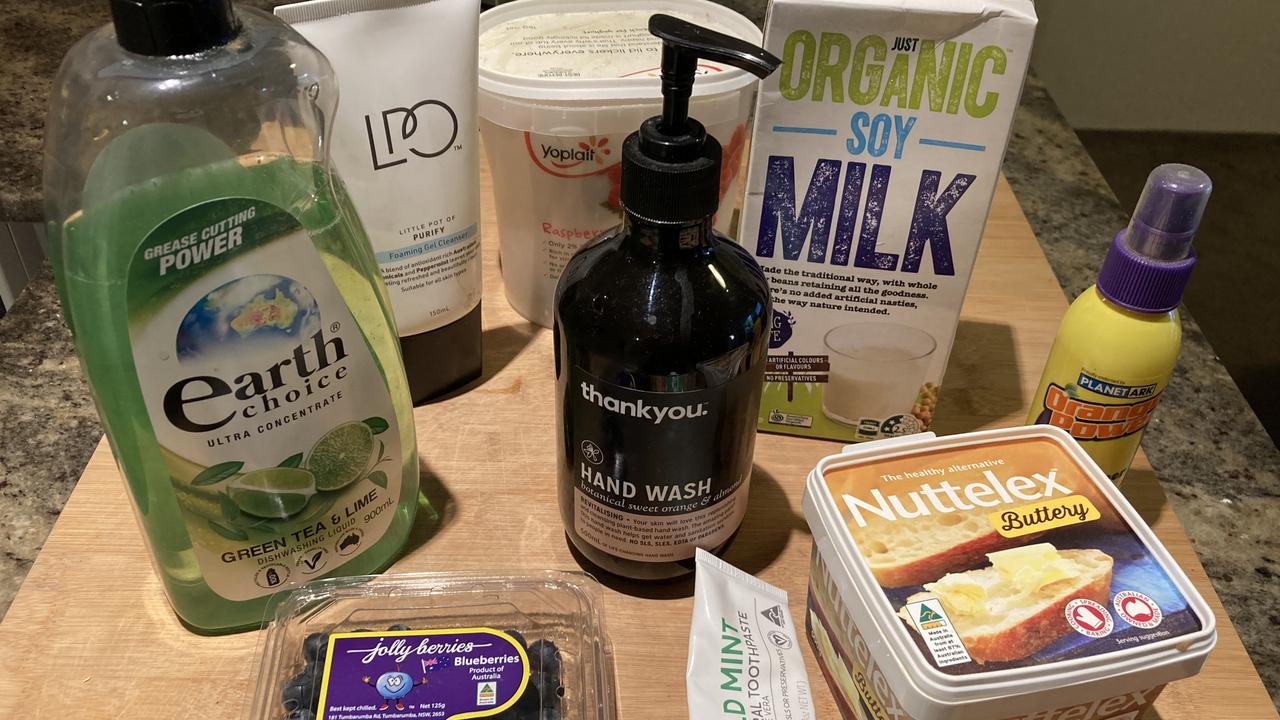
How to eliminate PETE from your life
PETE is not good for you. According to Breastcancer.org re-using a piece of packaging made from PETE could see harmful chemicals leach into your body. So that store-bought plastic water bottle you’ve refilled 10 times? Might be time to rethink that.
Another thing about PETE is that it’s bad for the environment. Yes, it’s recyclable but that doesn’t mean it’s always recycled.
During the financial year from 2017 to 2018, 3.4 million tonnes of plastics were consumed in Australia. Of these only 320,000 tonnes were recycled. That leaves a plastics recycling rate of just 9.4 per cent, which is down on previous years.
The highest recycling rate was for PETE at 21.1 per cent.
Still, that doesn’t mean it’s off the hook. Although it can be recycled, it looks like Australia isn’t doing its bit if almost 80 per cent of it is likely ending up in landfill.
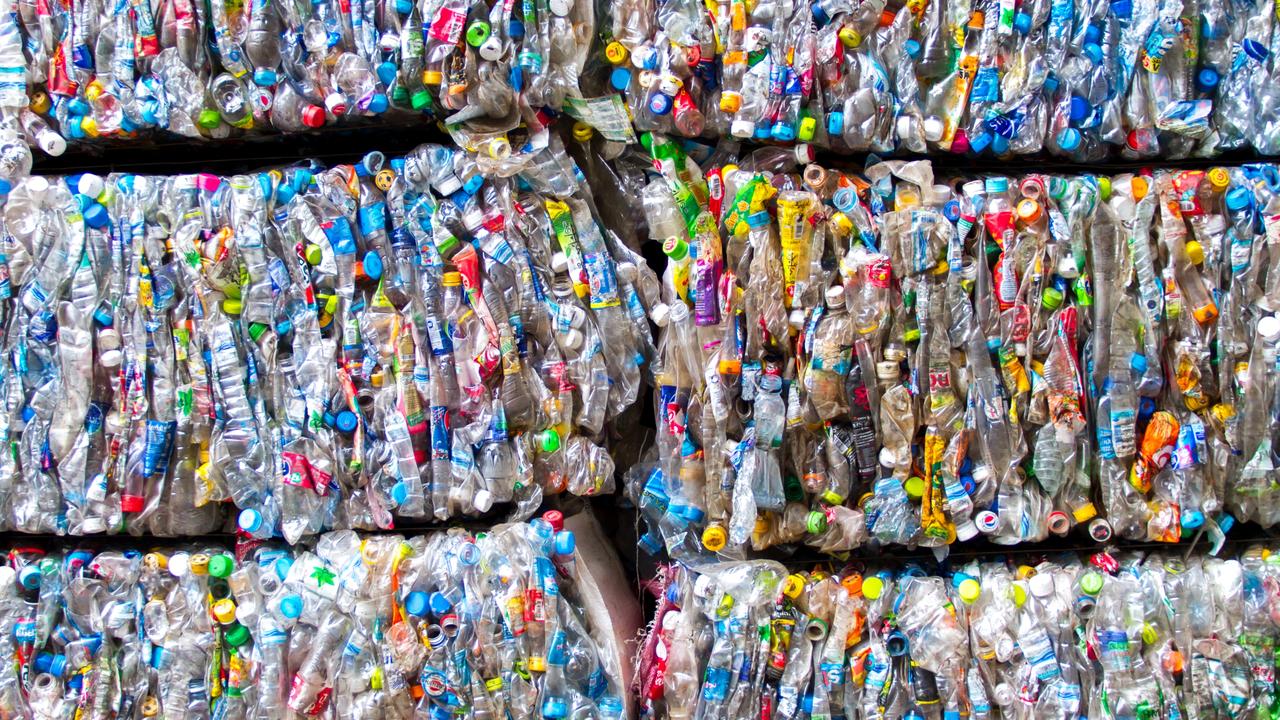
Another problem with PETE is that the carbon emissions and environmental pollution caused by waste Polyethylene terephthalate disposal are considered urgent environmental issues.
So every single bottle of water or Coke you’ve ever consumed is more than likely still in landfill. Crazy, huh?
And it doesn’t stop there. PETE also breaks down into microplastics that can get into the ocean, rivers and even our drinking water. This means that nice piece of fish you bought for Easter lunch could have been filled with bits of PETE. Yum.
Researchers still aren’t sure what the long-term impact of ingesting microplastics could be but they do know plastics can leach harmful substances – something which could be happening in our bodies when we consume them.
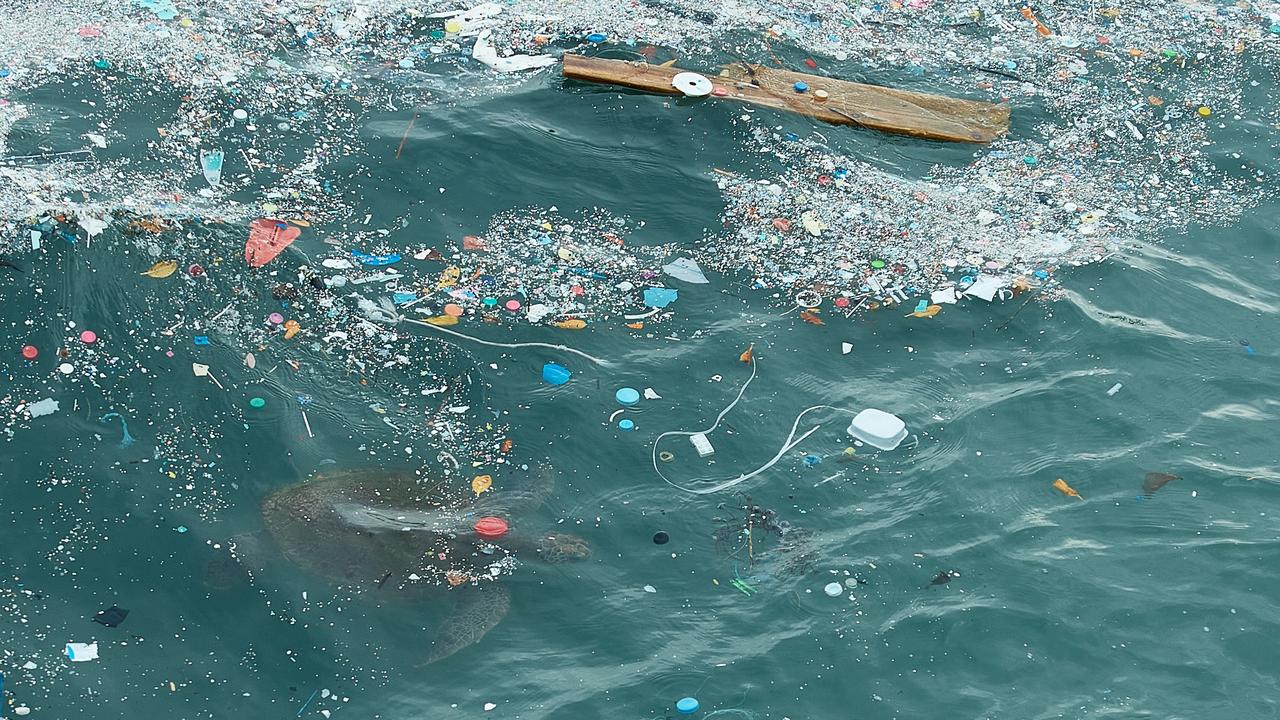
It’s been estimated that if our use of plastic continues at this rate, there will be more plastic than fish in the ocean by 2050.
What can you do?
While it might be hard to eliminate plastic from your life entirely, there are a few swaps you can make that won’t cost any extra and will help make the planet a prettier and safer place for everyone.
1. Buy a reusable water bottle
This is number one on every avid recycler’s list. We are so lucky to have loads of water refill stations in Australia and the water comes out clean and cold. Metal water bottles are best as they are hardy and can be recycled if no longer needed.
2. Buy soft drinks in cans or glass bottles
While plastic and glass bottles and aluminium cans are all recyclable, the truth is that plastic bottles are a lot less likely to be recycled. According to the Australian Aluminum Council, 75 per cent of aluminium ever produced is still in circulation today, while only 9.4 per cent of plastics are recycled.
So if you’re buying a soft drink, pick a can first, followed by a glass bottle and choose plastic last. Also look for packaging that is already recycled.
3. Use soap bars instead of bottled soap
The trend for body soap bars like Grandma used to have isn’t going away, and there are also some great shampoo and conditioner bar options too. I love the brand Ethique which can be found in Priceline and online. They’re quite expensive at $25 each but they last ages.
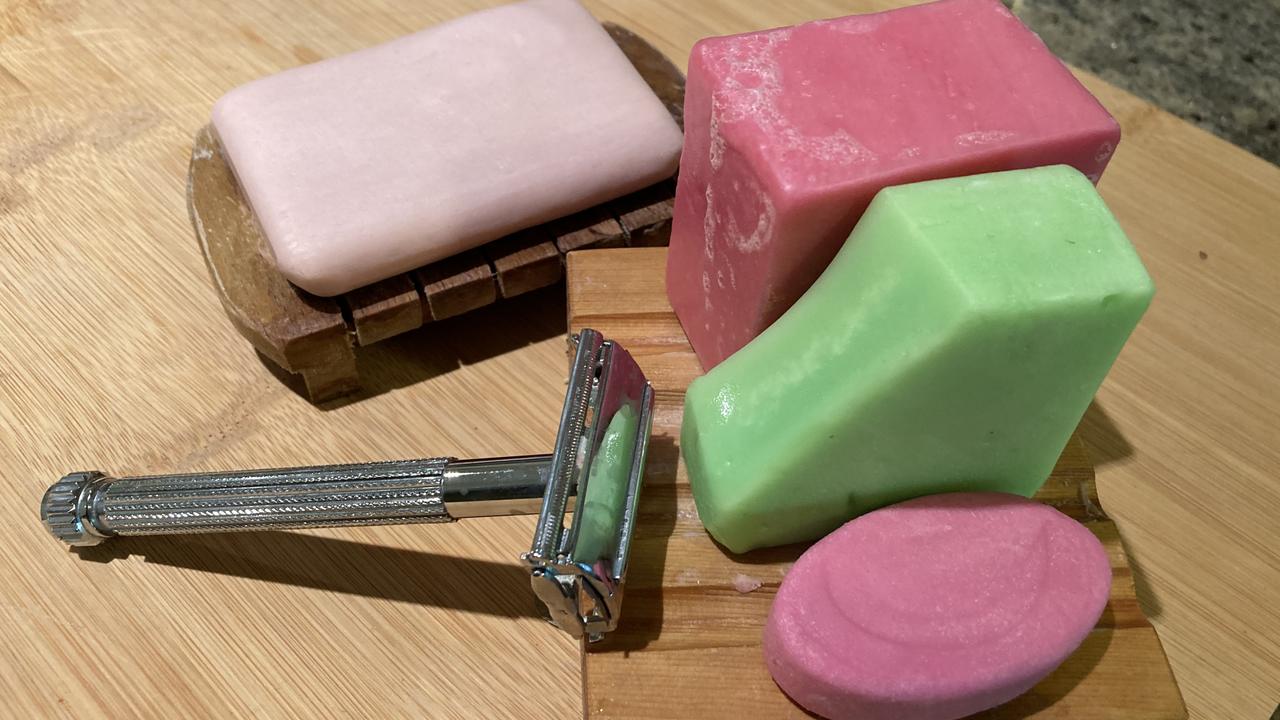
4. Use concentrated dish washing soap or buy from a bulk store
PETE is also what makes up dishwashing liquid bottles so buying a concentrated dishwashing soap, like Earth Choices (which is also super cheap), you can at least use less bottles a year. You can also refill old bottles at bulk stores – just check how much it will cost before you fill as it can be pricey.
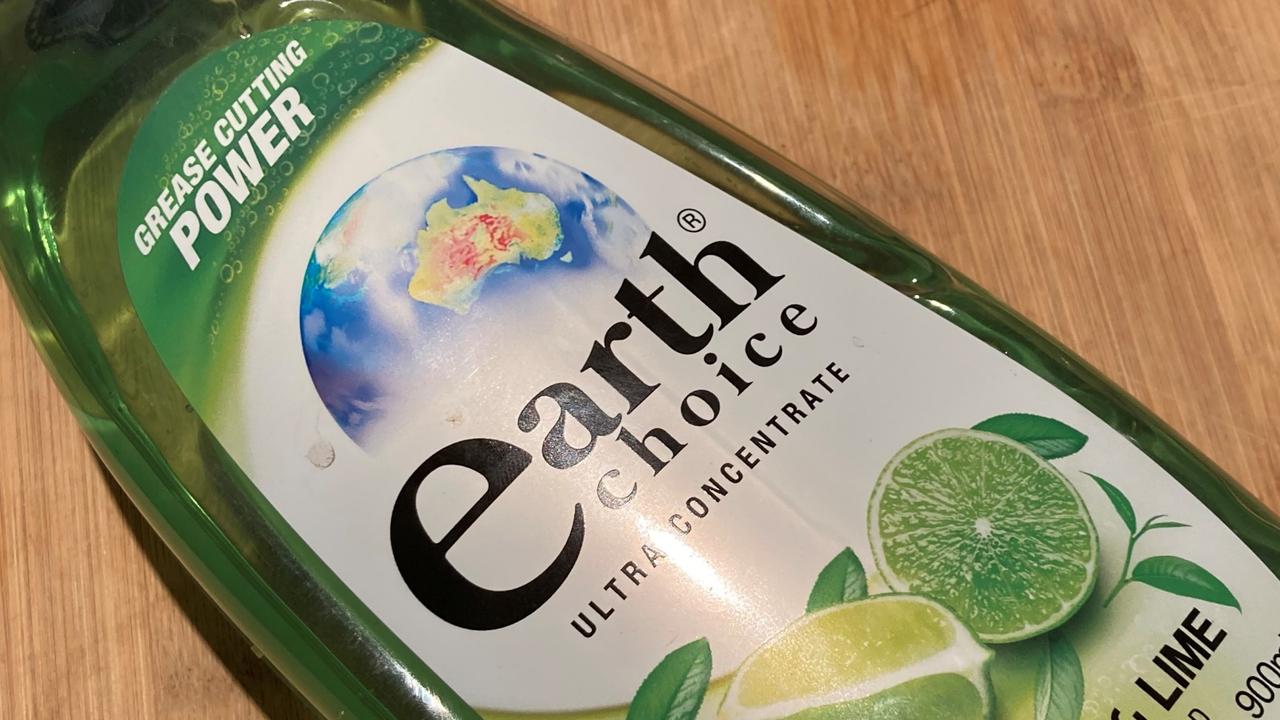
5. Choose glass over plastic for oil, peanut butter etc.
While glass is heavy and therefore uses more energy to transport, the good thing about glass is that it can be recycled indefinitely. Currently Aussies recycle 43 per cent of their glass. Rates are also growing thanks to the 10c container deposit scheme.
6. Buy in bulk
No matter how hard you try, some things can only be bought in plastic. For example, something like siracha hot sauce only seems to come in plastic. In this case buy the biggest bottle you can find – this will not only save on plastic but also on money.
If everyone makes s few small changes then we can all help reduce the amount of waste Aussies are putting into landfill. Happy recycling!
Do you have any recycling ideas? Email riah.matthews@news.com.au






